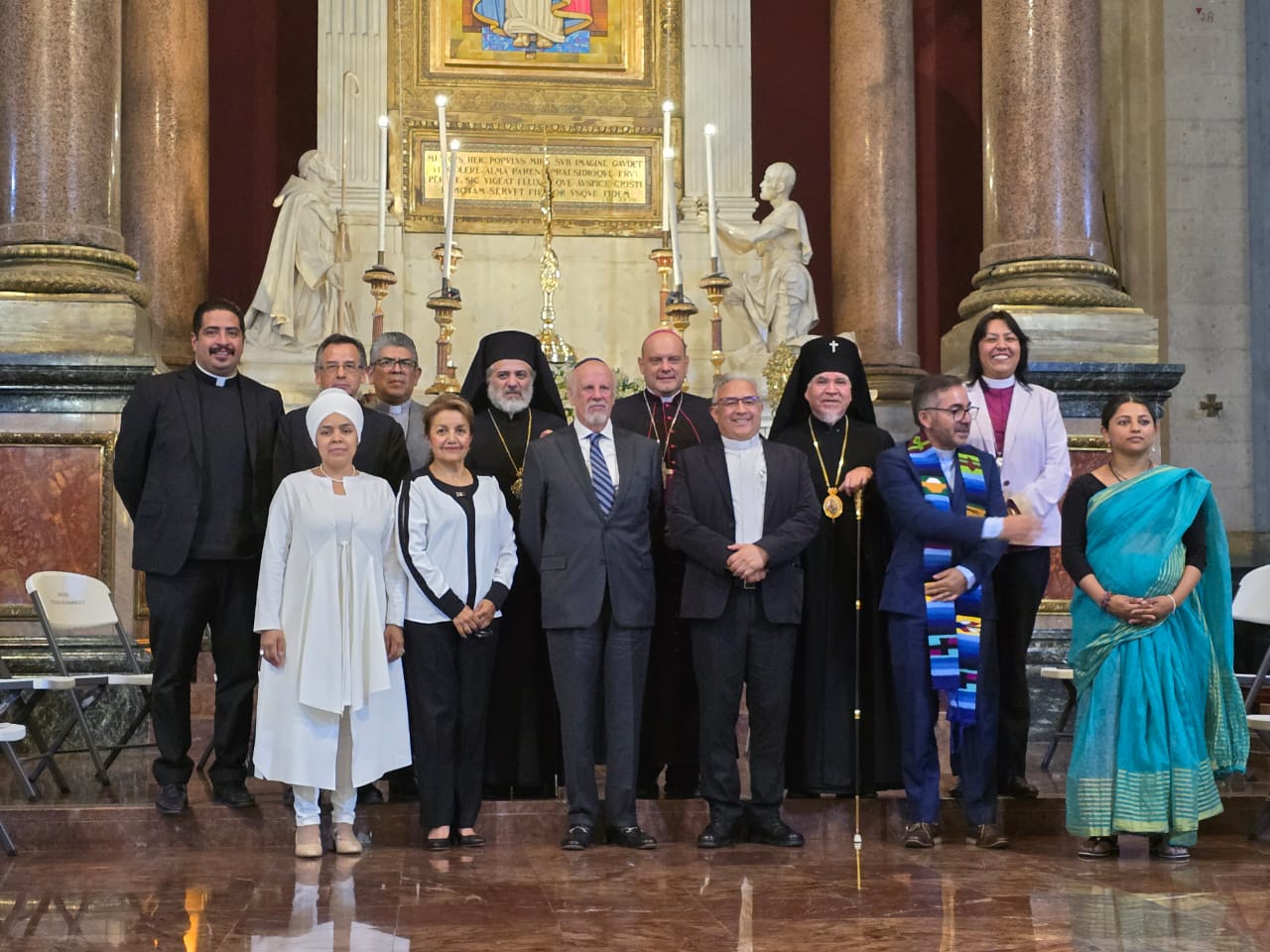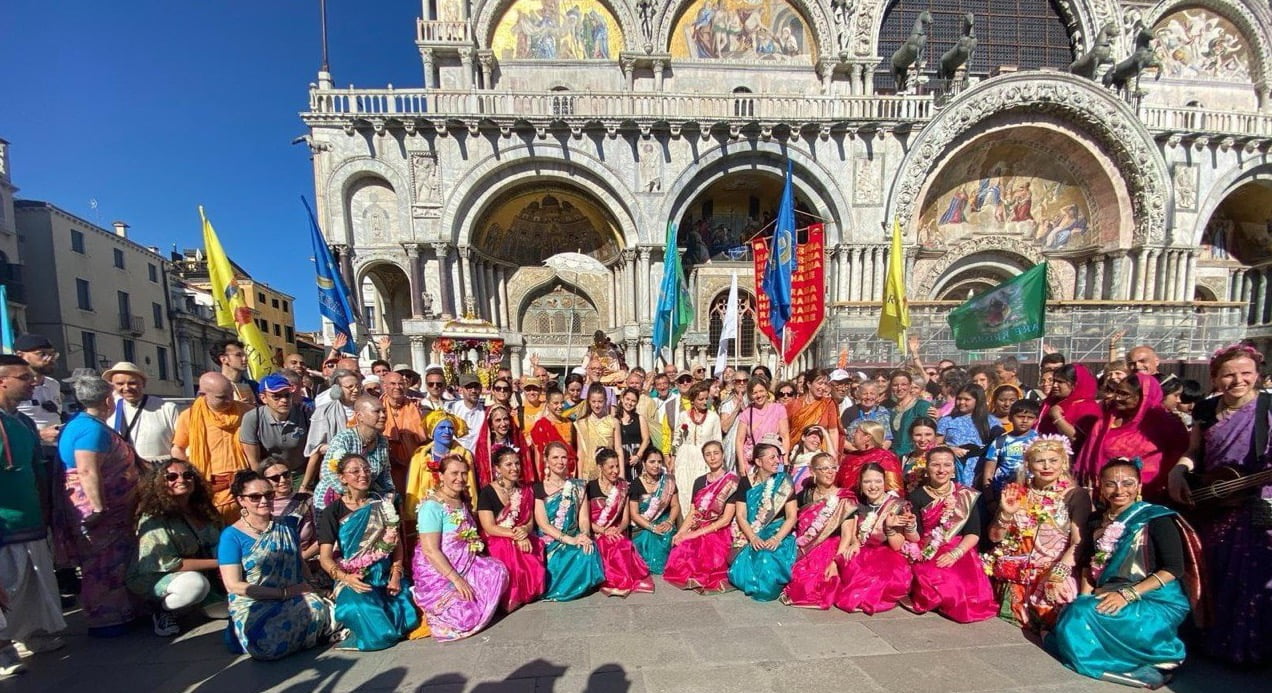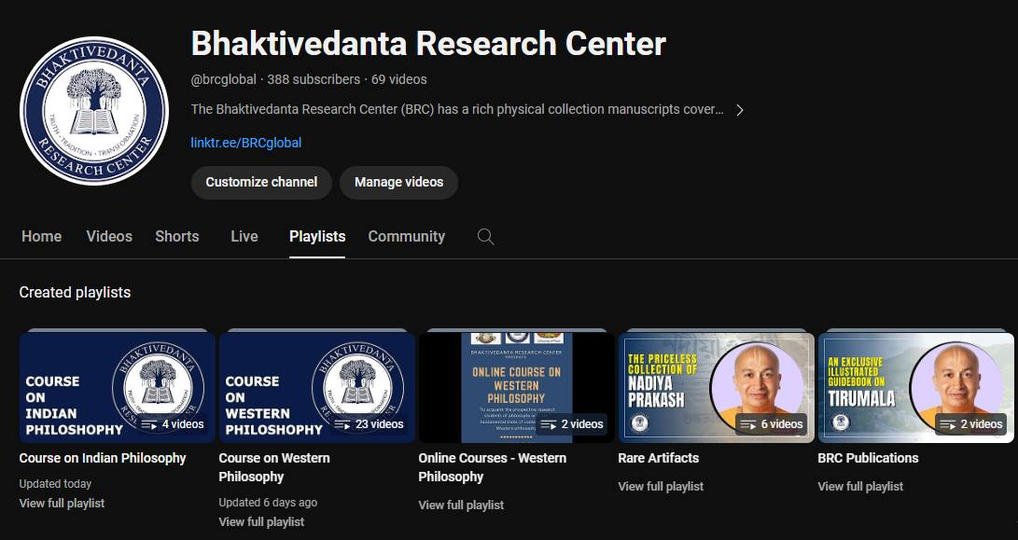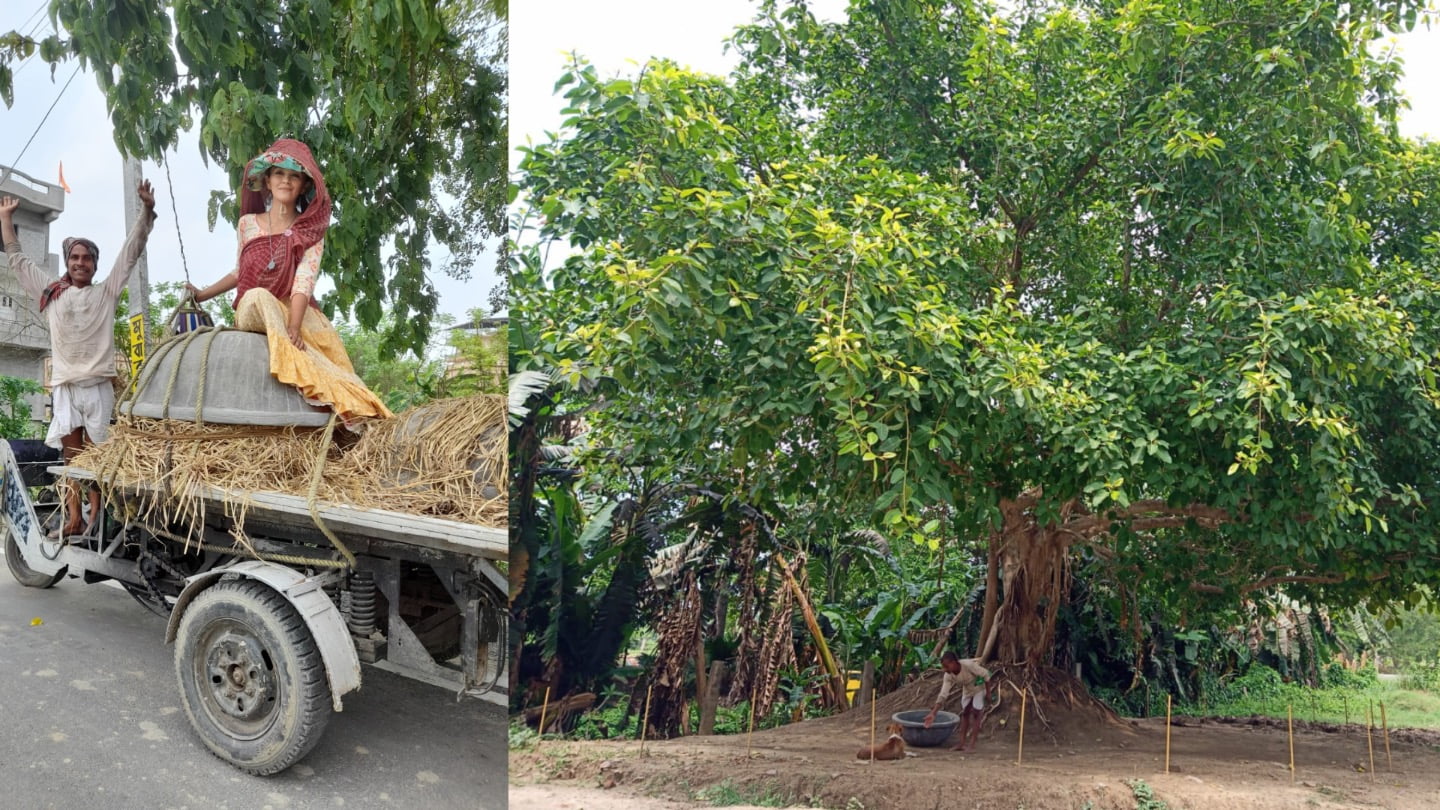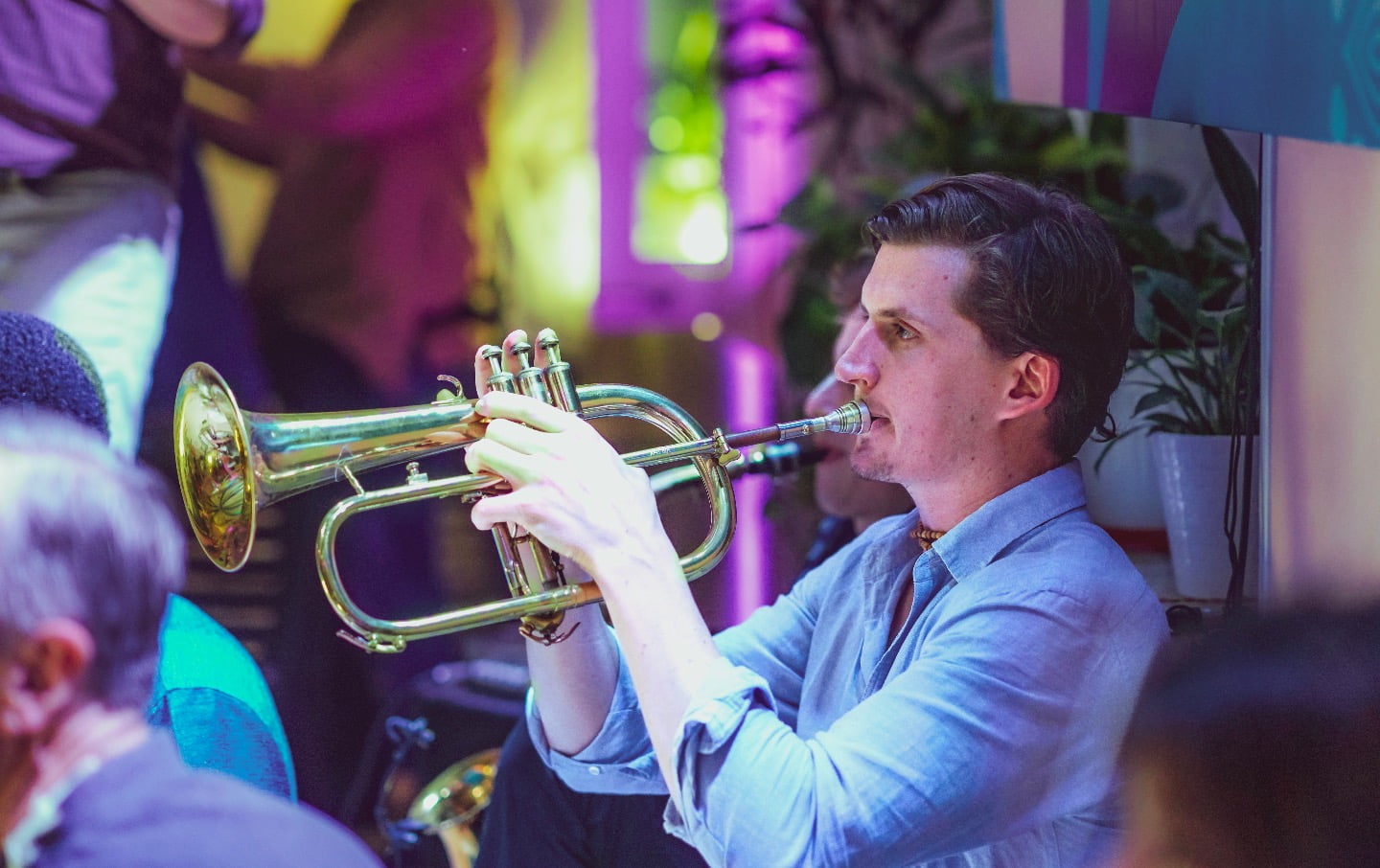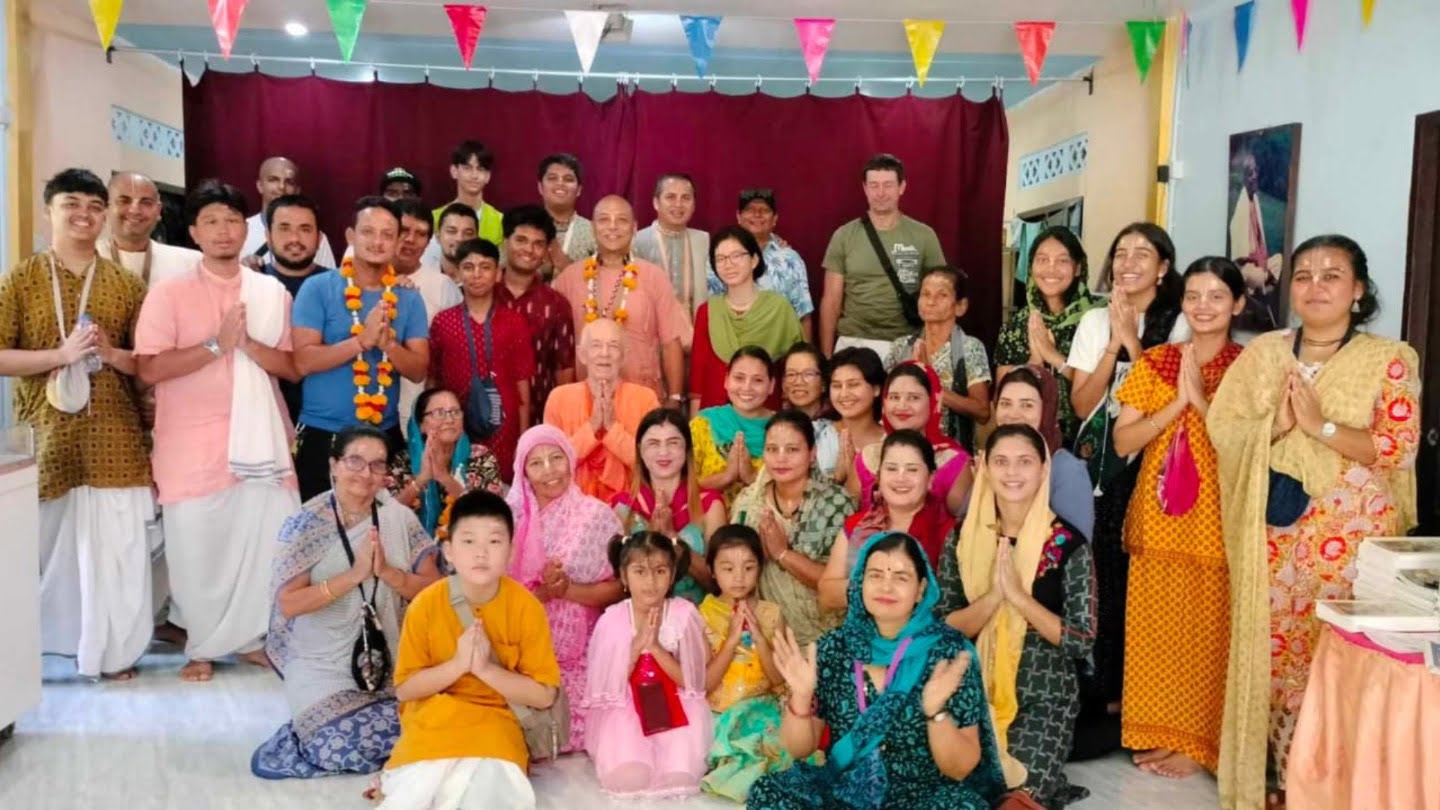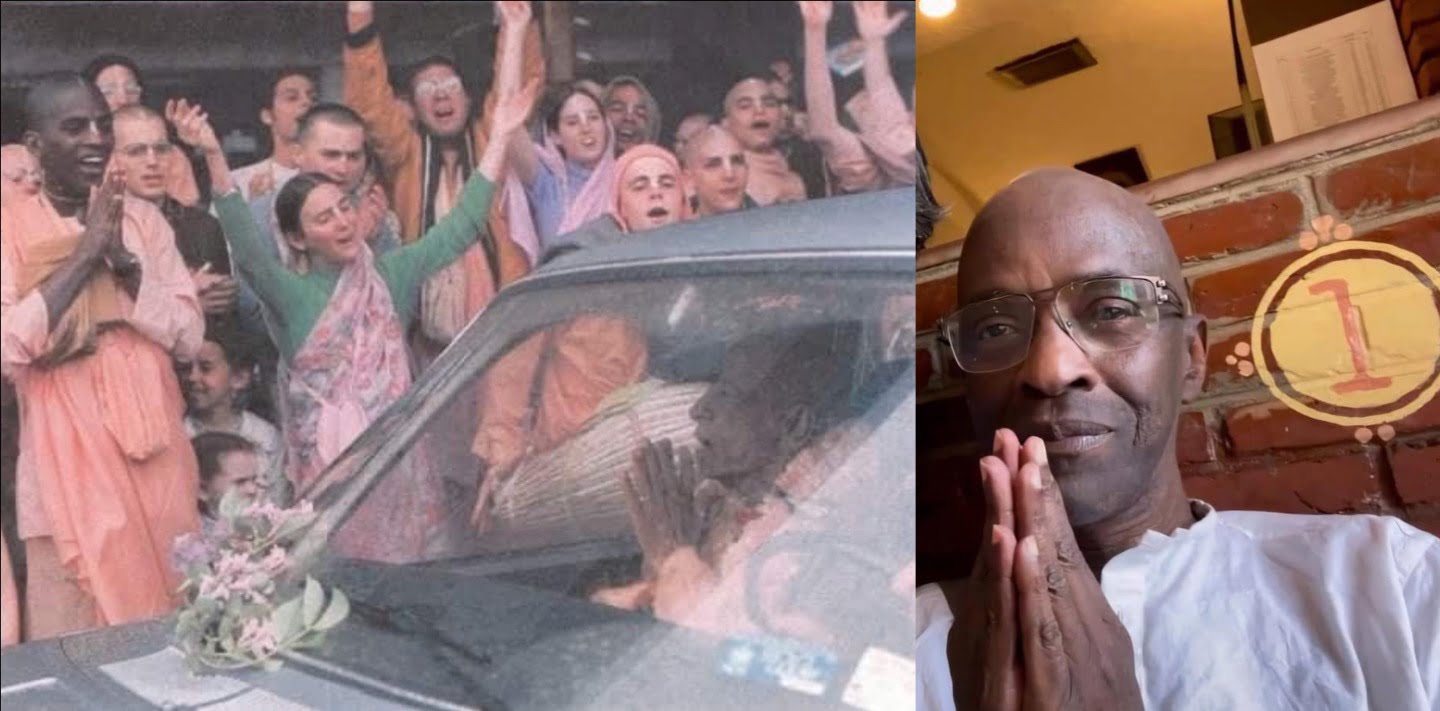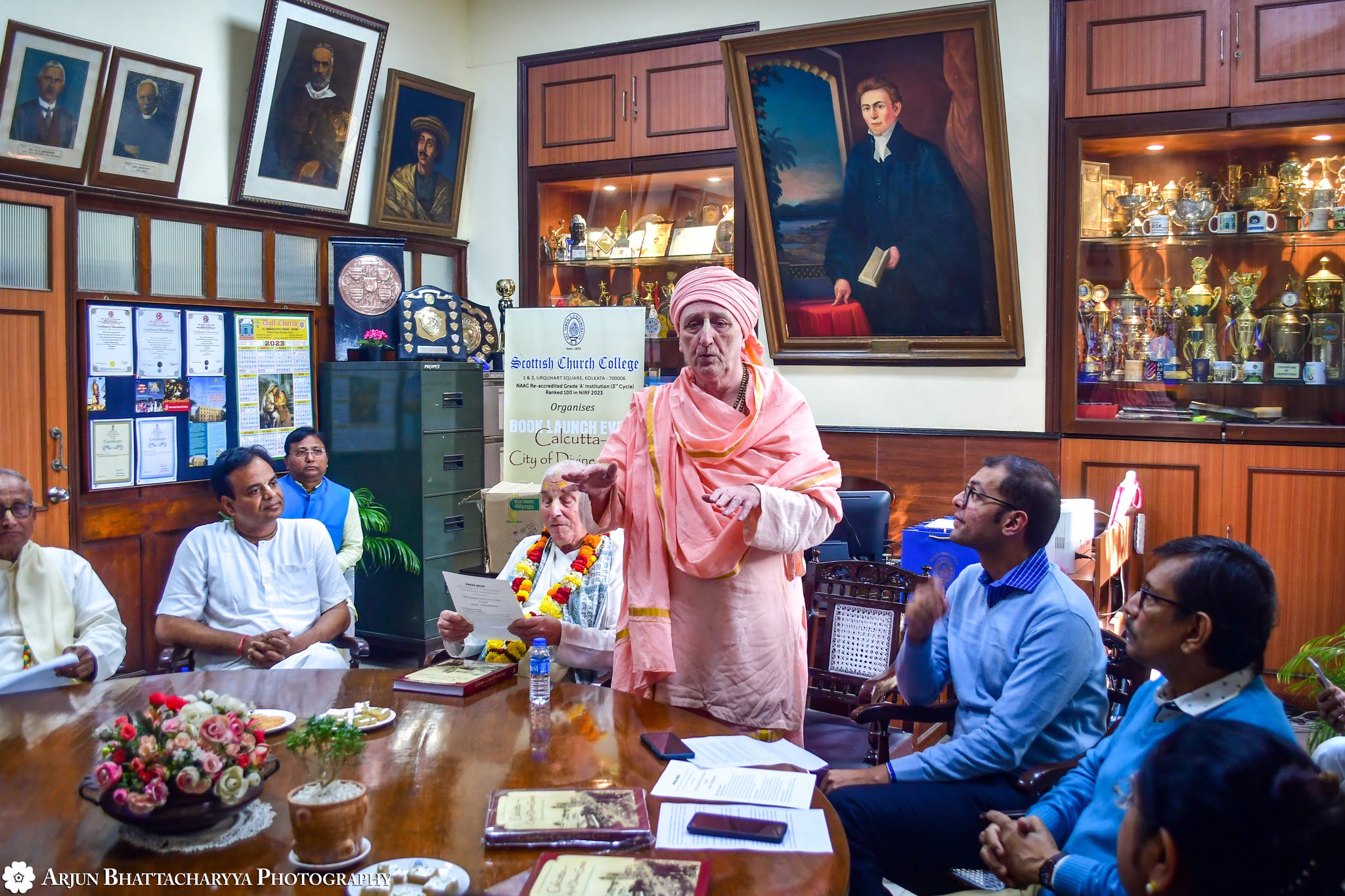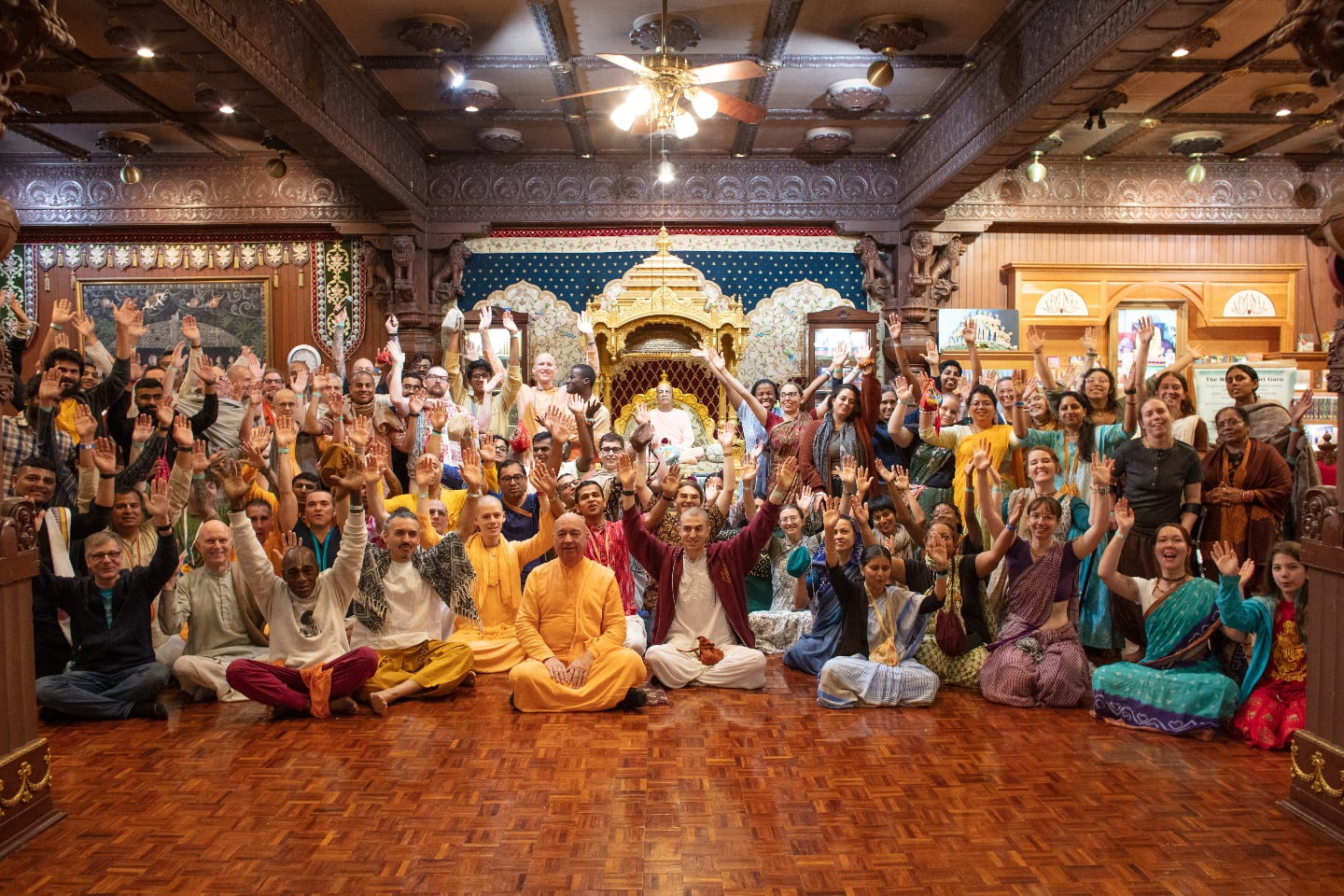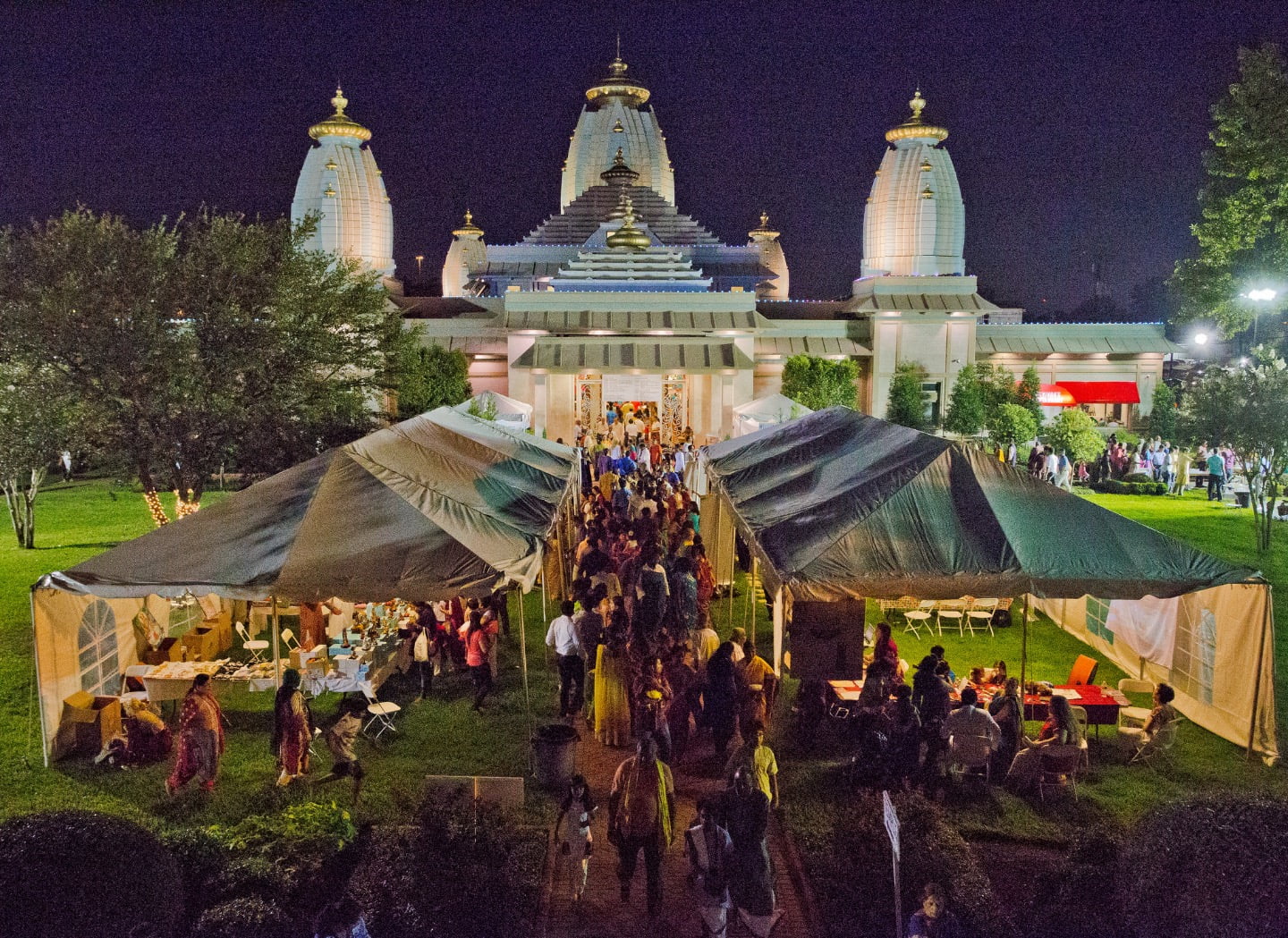“Days of India”: Special Events in a Croatian School
By Aradhana Dasi | Apr 30, 2011
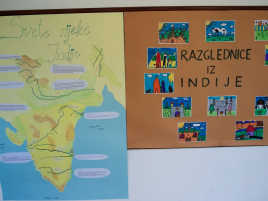
In mid-April, a school in Croatia attended by two devotee children, Naryana and Nila, held three “Days of India”. Their parents and other older devotees got to talk, cook, dance, organize a musical presentation, and provide saris for the girls to put on. Every classroom door announced a topic: Music of India, Indian Traditions, Indian Dance, Indian Cooking, and so on.
Narayan was in the music class, and the teacher asked whether he might know a nice Indian song. He said yes and began to sing the prayers to Nrsimhadeva. The teacher said it was beautiful and that they would all learn it. So they learned the song, which was now written on the board at the front, and Narayana told them the story behind it. When the class ended, as the students went out, Narayan said they were still singing. Though one boy said at the beginning, “I don’t want to be here; I don’t care about India and all that,” at the end he apologized and said it was wonderful.
The next day, Narayana and Nila’s father, Alaukika-prema Dasa, introduced the music students to traditional instruments: tambura, harmonium, mrdanga, karatals. Alaukika told them the story of Nrsimhadeva in such an expressive and mystical way that they listened with enthusiasm and later asked to hear other stories. And through the hallways their singing was heard, as they rehearsed for the third day, when they presented the music to the entire school.

Ajitendra Dasa, a householder working on a master’s degree, talked about religion and Indian classics. He spent five hours with the kids. He showed them a Mahabharata and told them about the Bhagavad-gita as the central message. A second hour began by his presenting the Ramayana. He showed a new animated movie that the students and teachers enjoyed. It was in English, so he kept the sound down and narrated in Croation. The program was attended by students with special needs who, to the surprise of their teachers, acted uncommonly calm and seemed to feel included. At the end, some students expressed a desire to present an excerpt from the Ramayana in the form of theater. Other teachers who visited his classes wrote down the titles of Indian classics so that they could read them. The teacher in charge of religion was both friendly and inclined toward the dialogue and new ideas. At the end of the day, Ajitendra was invited to the staff room, where he received recognition and a gift from the school.
Narayana and Nila’s mother, Aradhana Dasi, taught Indian cooking. Before the students went to the kitchen, she took them outdoors, where they got to introduce themselves. Gradually the group talked about how people are often upset, unhappy, and disappointed and thus depend on coffee, cigarettes, and alcohol. Students gave examples of their parents’ bad habits and said they are sorry they cannot change these. Then they talked about the food they eat and about the state of mind of the cook. When she asked them what an animal feels when it is killed, they said, “Fear! Anger! Panic! Grief!” Then she asked, “So what happens when we eat that body?”
One answer was: “Well, it all transfers to us.” And they came up with other good points.

Finally, they relaxed by doing some yoga exercises and then went to the kitchen to cook. The kitchen had an aroma of incense and they listened to ragas. Aradhana had printed out the curative properties of the spices they used. They made chapatis, kitri with basmati rice, and biscuits with carob. The kids really liked the lunch, and the children in the corridor sensed the smells and asked whether they could try some. Finally, a teacher came and asked for some food, and plates were sent to the staff room. The teachers then asked, “What will you cook tomorrow?”
With enthusiasm, the following day they made laddus, mung dal, pakoras, and strawberry lassis. Some kids said they had tried to make chapatis at home. The CD with Vaishnava songs so much appealed to one teacher that she asked where she could get it.
Two teachers saw the vegetarian cookbook by Adiraja and said that they also had that book at home. This is the work of devotees who, twenty years ago, did book distribution in Buje and Umag and at that time also got Aradhana and Alaukika involved in Krishna consciousness when they were fifteen and seventeen years old. Two years ago, their guru, Krsna Ksetra Prabhu, instructed their son Narayan to learn the Nrsimha Pranams, without which that song would not have been chosen. So Lord Krishna nicely designed all this.

On the final day of presentations, enthusiasm ruled the school. The kids were looking forward to show what they had learned about India. Throughout the halls were posters the children had made, and one of them was called “India’s spiritual leaders”. Whose name was in the first place? Srila Prabhupada’s! The atmosphere was no longer like that of an ordinary school, but of a sacred place. Some children commented that the map of India looks like a bigger map of
Istria, the northwest region of Croatia in which their school is situated.
Devotees from Zagreb arrived to take part in the large school-assembly program. Sunadarananda Dasa, the temple president, met with the cooking class and taught them how to make a few more delicious things. Gokulendra Dasa joined the music class and demonstrated mantras for playing mrdanga. Lalita Dasi helped to train a group of girls in Indian dance and brought a lot of saris for the girls. Lavanga Manjari Dasi drew on hands (Mehendi), and teachers and students at the assembly stood waiting for a turn.

The director of the school, dressed in a beautiful sari, began the presentation. She thanked everyone and gave us letters of gratitude. The students presented what they had learned in workshops: Ayurveda, Indian Math, Spices, Yoga, and saris made of a special paper which they could paint
and wear.
Ajitendra’s students spoke about India’s sacred books and enacted a scene from the Ramayana, wherein Rama raised a bow and won the hand of the beautiful Sita. Then came the music. Nila played her flute along with the group, who sat on the floor, led by Narayna and conducted by Alaukika. They received huge applause at the end.
Then little Mandakini Madhavi, from Zagreb, danced and charmed everyone. This was followed by a surprise, presented by the cooks, who lifted a curtain to reveal beautifully arranged prasadam.
Prasadam was served to more than three hundred people. Ladies from other towns helped prepare it: Mahastri, Vrindavan Biharini, Sacimata, Rohini, and Lakshmi Priya. Malati Mala Dasi helped prepare prasadam and arranged it and decorated the table.
Later, in the teachers room, the teacher of the music workshop praised Alaukika before all the teachers and said that she had learned so much from him. He reached children who are otherwise difficult to reach. The teacher of the Croatian language could not stop eating and praising the prasadam, and she also asked whether she could keep some books until she read them.
One teacher who has worked in that school for many years, since the time when Alaukika attended elementary school there, is a vegetarian, and she visits India and loves Indian culture, so she was happy about all those events.
A professor said, “Never in all these years has the school been filled with so much peace, collaboration and friendship.”





